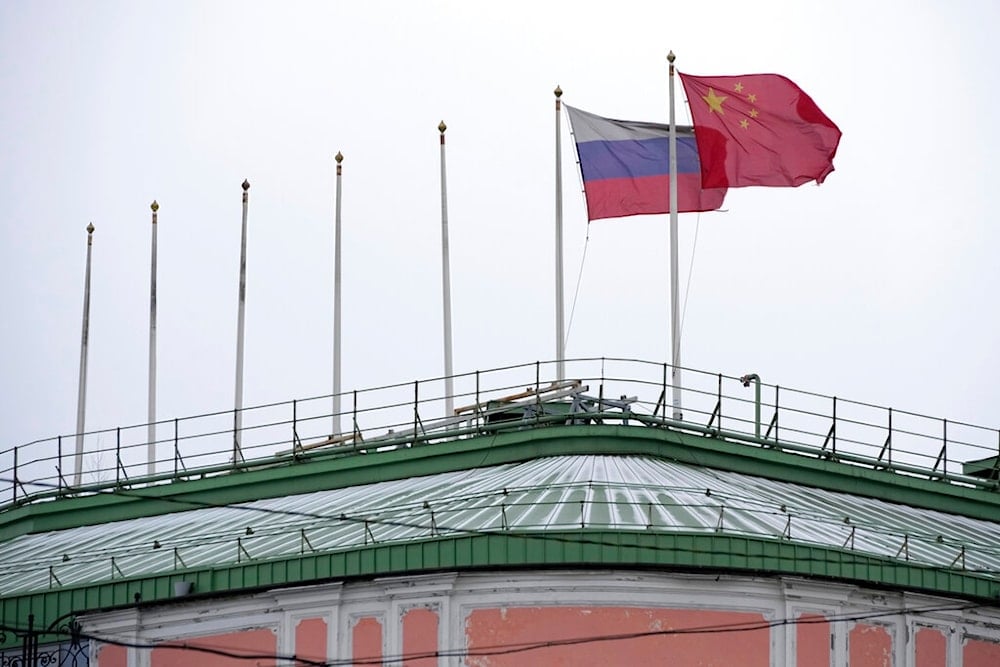Putin upcoming visit to Beijing reveals US threats as ineffective: FT
Despite threats of sanctions, both the Russian and Chinese governments have shown remarkable resilience.
-

The flags of Russia and China flutter on the roof of a hotel with the flags of other countries removed, in central St. Petersburg, Russia, Wednesday, Nov. 30, 2022 (AP Photo/Dmitri Lovetsky)
The Financial Times on Tuesday published an op-ed detailing that Russian President Vladimir Putin's upcoming trip to Beijing might signal a significant shift in perceptions of Western economic threats. It posits that Putin's visit to Beijing could serve as a testament to the resilience of Russo-Chinese cooperation in the face of US sanctions.
Since February 2022, Beijing has become Russia's largest market for oil and gas, as well as a major source of imports.
Alarmed by this partnership, the White House in December 2023 threatened sanctions on any bank facilitating payments for Russian military equipment.
US Treasury Secretary Janet Yellen and Secretary of State Antony Blinken made separate visits to China earlier this year, issuing warnings to Chinese leaders and financial institutions.
Despite these threats, both the Russian and Chinese governments have shown remarkable resilience. Putin's visit presents a new opportunity to discuss the creation of an alternative global financial market.
Accompanying him will be a team of experts from the central bank and finance ministry responsible for Kremlin's campaign to de-dollarize Russia's financial system since 2014. Their actions have permitted the country to withstand the initial shocks of sanctions and swiftly transition its financial system from reliance on the dollar and euro to the renminbi.
Read more: Russia, China ditch dollar; Moscow announces new trade corridors
By December 2023, the renminbi accounted for over a third of settlements in Russian trade with foreign partners—a significant shift from virtually zero before the start of the Ukraine war. This was largely facilitated by debt conversion from dollars and euros to renminbi.
Russia and China use local infrastructure for proceeding and clearing transactions, the op-ed notes. However, this alone may not shield Chinese banks from sanctions if Washington finds out any prohibited transactions.
The next step for Moscow and Beijing would then likely involve establishing advanced infrastructure for sensitive payments.
While it's unlikely to involve any major Chinese bank deeply integrated into the global financial system, some of the 4,500 regional Chinese banks already have correspondent relationships with Russian banks.
A scheme involving smaller banks conducting transactions exclusively in their national currencies and using only local infrastructure is plausible, the writer notes. Many dummy companies may act as intermediaries, including those from Central Asia and the Gulf.
Although such transactions would be costlier and take longer, it would be challenging for the US to detect and clamp down on them.
Sooner or later, the US government is likely to uncover these mechanisms, the op-ed notes. However, by utilizing the Russian economy as a giant sandbox, Chinese authorities can refine financial infrastructure that other countries seeking antidotes to Washington's weaponization of the dollar can utilize.
Read more: Russia, China reach near complete de-dollarization in bilateral trade

 3 Min Read
3 Min Read








